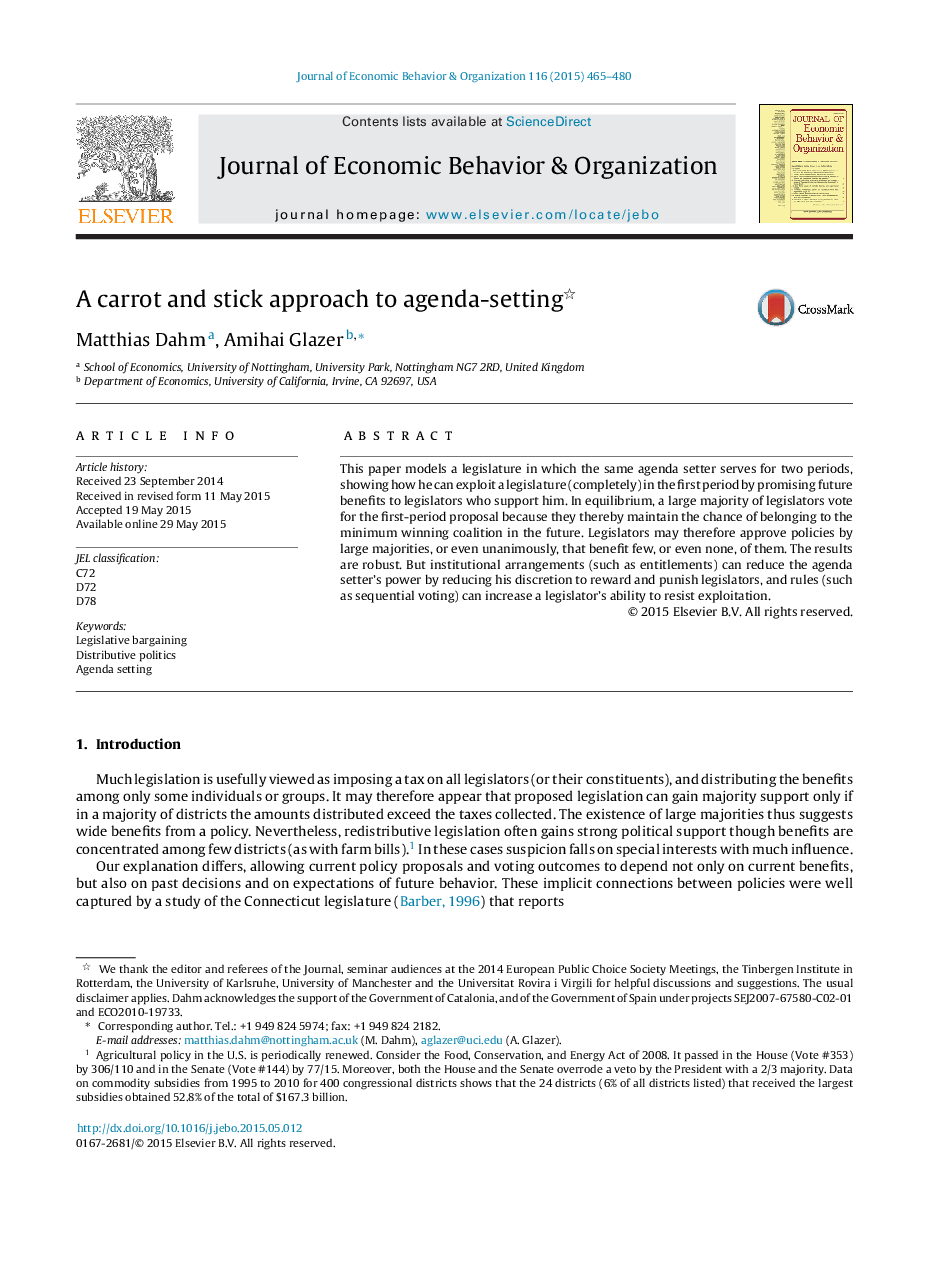| Article ID | Journal | Published Year | Pages | File Type |
|---|---|---|---|---|
| 7243190 | Journal of Economic Behavior & Organization | 2015 | 16 Pages |
Abstract
This paper models a legislature in which the same agenda setter serves for two periods, showing how he can exploit a legislature (completely) in the first period by promising future benefits to legislators who support him. In equilibrium, a large majority of legislators vote for the first-period proposal because they thereby maintain the chance of belonging to the minimum winning coalition in the future. Legislators may therefore approve policies by large majorities, or even unanimously, that benefit few, or even none, of them. The results are robust. But institutional arrangements (such as entitlements) can reduce the agenda setter's power by reducing his discretion to reward and punish legislators, and rules (such as sequential voting) can increase a legislator's ability to resist exploitation.
Related Topics
Social Sciences and Humanities
Economics, Econometrics and Finance
Economics and Econometrics
Authors
Matthias Dahm, Amihai Glazer,
